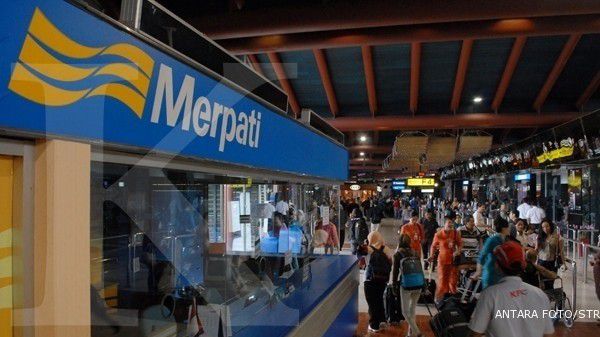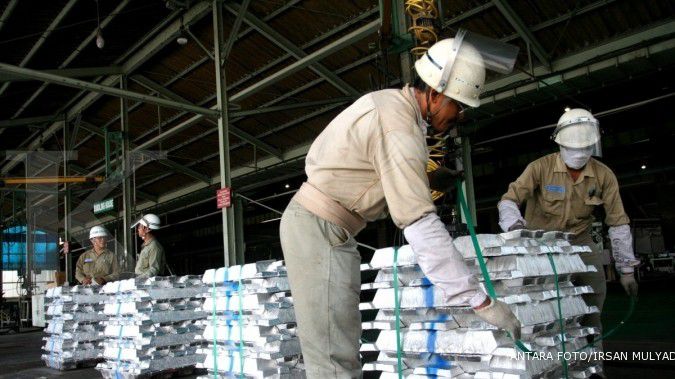JAKARTA. State-owned telecommunications operator PT Telekomunikasi Indonesia (Telkom) will put more emphasis on expanding its broadband networks this year to keep its 2014 growth at least within the industry average.
Telkom financial director Honesti Basyir said on Friday that Telkom was aiming for 6-7 percent growth in 2014, in line with the industry’s growth this year.
“Meanwhile, we expect Telkomsel’s growth to decline slightly to roughly 8 percent in line with industry trends,” he added.
Industry observers expect the telecommunications industry to grow approximately 6-7 percent this year, as compared to roughly 7-9 percent in 2013. The industry is considered to have matured and the market is seen as saturated, considering that SIM card penetration has surpassed 100 percent.
Telekomunikasi Selular, or Telkomsel, is the primary revenue maker for its parent company, Telkom, and is the market leader in the cell phone industry.
Telkomsel accounted for Rp 60 trillion (US$5.24 billion), or 72.3 percent, to Telkom’s total revenue of nearly Rp 83 trillion in 2013. Telkomsel has seen its revenue rise by 10.1 percent year-on-year, exceeding Telkom’s 7.5 percent annual increase.
Telkomsel’s revenue growth also eclipsed the growth of other GSM operators, considering that Indosat grew by 6.4 percent year-on-year to almost Rp 24 trillion while PT XL Axiata barely registered an increase with its Rp 21.3 trillion.
Honesti added that Telkom aimed to reach its revenue target by boosting overall broadband growth by “double digits” this year, through improving both its fixed and mobile broadband network infrastructure.
Data, Internet and IT services excelled in terms of growth although cellular voice services remained the number-one revenue generator. Data, Internet and IT services booked a 14.8 percent year-on-year revenue growth to Rp 31.7 trillion while cellular voice services increased by only 4.6 percent to Rp 32.1 trillion.
He pointed out that Telkomsel added approximately 1,000 new base transceiver stations (BTS) every month.
“Overall, approximately 70 percent of the new transceivers support 3G technology, with the remaining supporting 2G,” he said.
By the end of 2013, Telkomsel operated 69,864 transceivers, a 28.7 percent increase compared to the previous year. As many as 38.7 percent of all transceivers were 3G, compared to 28.4 percent in the past year.
Besides strengthening Telkomsel’s mobile broadband network, Telkom also sought to enhance its fixed broadband services by extending its fiber optic network, Honesti noted.
“We aim to have 75,000 kilometers of fiber optic [cables] by 2015,” he said.
“We closed 2013 with roughly 68,500 kilometers of fiber optics, and plan to install between 3,000 and 5,000 kilometers this year,” he added.
He further said that Telkom would fund the expansion through capital expenses “with a size equivalent to 20-25 percent of revenue” in the previous year.
“Approximately 60 percent of our capital expenses are earmarked for Telkomsel,” he added.
/2011/05/29/1224472946p.jpg)














